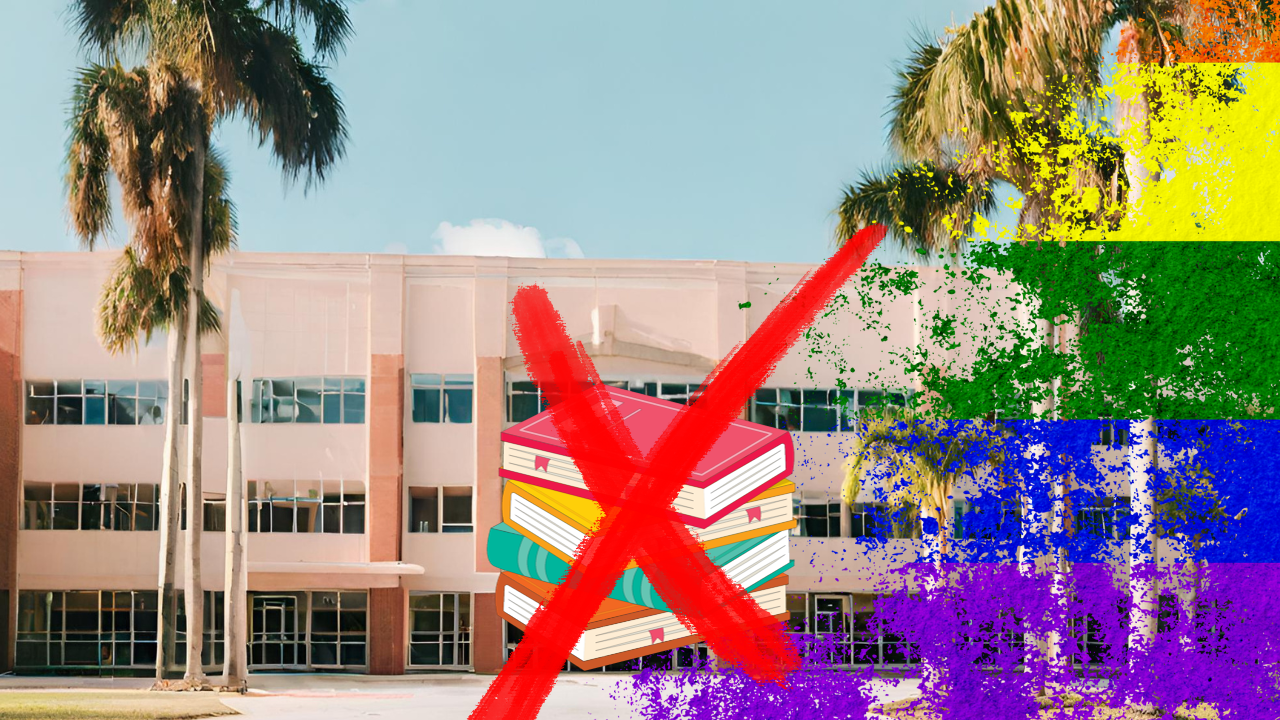Florida school district orders LGBTQ+ book ban
Florida school district orders purge LGBTQ+ books from libraries and classrooms
In the serene locales of Charlotte County, Florida, a storm brews in the quiet halls of its schools and libraries. A directive from the school district superintendent has ignited a debate that transcends the boundaries of the county, echoing the sentiments of a nation divided.
The Directive for Florida school district orders LGBTQ+ book ban
Superintendent Mark Vianello has stirred controversy by ordering the removal of all books featuring LGBTQ+ themes and characters from the district’s classrooms and libraries. This mandate is not confined to instructional materials but extends to any book that students might bring into these educational spaces.
The “Don’t Say Gay” Law
The Florida “Don’t Say Gay” law, formally known as the Florida Parental Rights in Education Act, intertwines with this development. Governor Ron DeSantis signed the law, which has been a subject of heated discussions since its inception. The law has undergone an expansion to encompass all grades from Pre-K to 12.
Questions and Clarifications
Librarians, the silent guardians of literature and knowledge, sought clarification on the revised Principles of Professional Conduct for the Education Profession in Florida.
They received explicit responses to their queries, leaving no room for ambiguity. The responders deemed the presence of LGBTQ+ characters and themes non-negotiable and decided to erase their existence within the educational ecosystem of Charlotte County.
The Public Response
The Florida Freedom to Read Project (FFTRP) unveiled this directive to the public, igniting discussions on freedom, rights, and education. The law, as interpreted by Charlotte County, extends its influence into libraries, spaces traditionally considered sanctuaries of diverse thoughts and ideas.
The Governor’s Stance
Governor DeSantis has dismissed accusations of book banning as a “hoax,” positioning the removal of such materials as a step towards eradicating “pornographic and inappropriate materials” from educational settings. The narrative is complex, with the Florida Department of Education offering conflicting guidance on the implementation of the controversial law.
The Students and Authors’ Outcry
A lawsuit filed by students and authors in June, following the removal of the children’s book And Tango Makes Three from library shelves, underscores the tension. The book, devoid of sexual content, became a symbol of the broader conflict surrounding the presence of LGBTQ+ themes in educational materials.
The Interpretation Dilemma
Charlotte County’s interpretation of the “Don’t Say Gay” law has extended its reach into libraries, deemed “classroom settings.” This interpretation has led to the exclusion of books with LGBTQ+ characters, even in high schools where media centers are not typically classified as classrooms.
Moving Forward
As the nation watches, Charlotte County becomes a microcosm of the broader dialogue on LGBTQ+ rights, education, and the intersectionality of the two. The unfolding events will not only shape the educational landscape of the county but potentially set precedents that could influence national policies and societal norms.
In this intricate dance of legislation, education, and rights, the voices of students, educators, and the LGBTQ+ community rise in unison, seeking a resolution that honors diversity, inclusivity, and the unalienable right to knowledge. The unfolding chapters of this narrative are yet to be written, and the nation watches, pens poised, ready to inscribe the outcomes into the annals of history.














+ There are no comments
Add yours